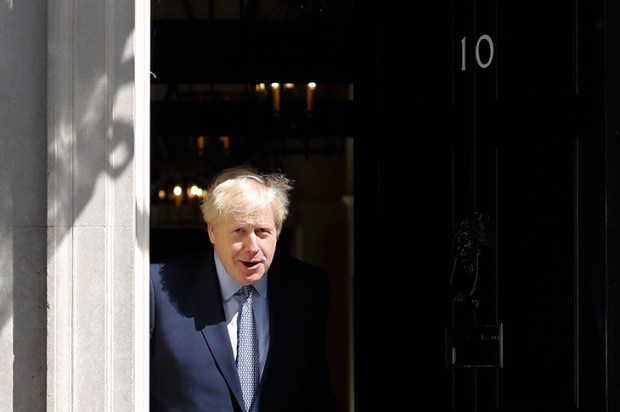At last October’s Conservative party conference, Amber Rudd revealed a rather silly proposal that companies operating in the UK should be obliged to publish data on the number of foreign workers they employ. It was rightly condemned and Rudd later said that the information would not be published, only used by the government to identify areas of skills shortages among British workers.
But a ‘hate incident’? That is exactly how, it transpires, the police recorded it. When you read the inevitable headline in a few months’ time that ‘hate incidents have soared’, you may just want to reflect that one of them was a speech by the Home Secretary. It turns out that Professor Joshua Silver, an Oxford physicist, was listening to the speech – which also contained proposals to deport migrants convicted of minor offences and to tackle modern slavery – and reported it to the police as a hate crime.
The police were obliged to investigate because that is what the law requires them to do. While in an earlier age police might have sent Professor Silver away with a warning not to waste their time, they are now obliged to record every single ‘hate incident’ — defined by the Association of Chief Police Officers and the Crown Prosecution Service as ‘any incident which the victim, or anyone else, thinks is based on someone’s prejudice towards them because of their race, religion, sexual orientation, disability or because they are transgender’. Moreover, they are obliged to consider whether the incident constitutes a ‘hate crime’, which is defined as ‘Any criminal offence which is perceived by the victim or any other person, to be motivated by hostility or prejudice based on a person’s race or perceived race; religion or perceived religion; sexual orientation or perceived sexual orientation; disability or perceived disability and any crime motivated by hostility or prejudice against a person who is transgender or perceived to be transgender.’
In the case of Amber Rudd’s speech the police decided it was not a crime, but nevertheless will remain on file as a hate incident. The irony is that Ms Rudd herself approved the government’s action plan on hate crime last July. She has been hoist by her own petard.
The problem with the definition of hate crimes and hate incidents – and which the Home Secretary should have spotted before putting her signature to them – are the words ‘perceived’ and ‘thinks’. Few would object to an action plan on hate crime if it were based on what a reasonable person would define as hate. By broadening the definition to what any individual ‘feels’, the government has opened the door to people abusing the process for political ends or for their own personal battle. Any of us, hearing anything we dislike, could report it to the police as a hate incident and that is exactly how it would be recorded.
This has made inevitable the ‘surge in hate crime’ that we keep hearing about. To take a few of the incidents recorded by Cambridgeshire police in the past few months: neighbours were embroiled in a parking dispute when one handed the other a leaflet on Brexit; an eBay user returned an item he had bought when he realised the seller was not a British national; a lady of Pakistani heritage passed someone on the street and thought that she heard someone mutter ‘Brexit’. Not exactly throwing someone down a well. The parking case is a prime example of how the concept of ‘hate incidents’ is being used by people to involve the police in disputes in which they would otherwise not be interested.
Amber Rudd has not been convicted of hate crime, but she, like many other innocent individuals, is now officially recorded as someone who caused a hate incident. If she is not happy about that she should reform the definition to something which conforms to common sense.







Comments